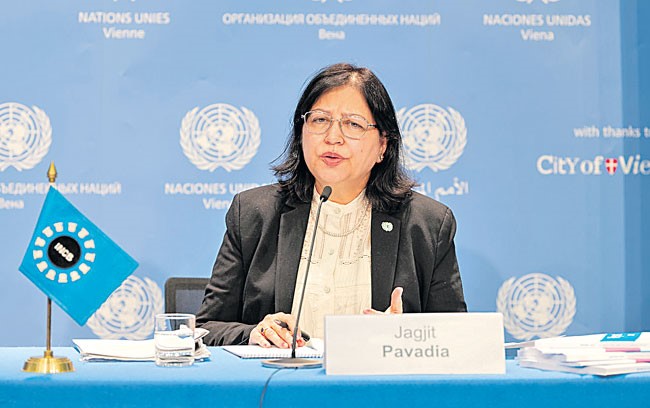




Disclaimer: Copyright infringement not intended.
Context:
Details:
International Narcotics Control Board:
About
Members
Functions of INCB
|
UN Bodies and ECOSOC The main bodies of the United Nations are the General Assembly, the Security Council, the Economic and Social Council, the Trusteeship Council, the International Court of Justice, and the UN Secretariat. All were established under the UN Charter when the Organization was founded in 1945. General Assembly ●The General Assembly is the main deliberative, policymaking, and representative organ of the UN. All 193 Member States of the UN are represented in the General Assembly, making it the only UN body with universal representation. Each year, in September, the full UN membership meets in the General Assembly Hall in New York for the annual General Assembly session, and general debate, which many heads of state attend and address. Decisions on important questions, such as those on peace and security, admission of new members, and budgetary matters, require a two-thirds majority of the General Assembly. Decisions on other questions are by a simple majority. The General Assembly, each year, elects a GA President to serve a one-year term of office. Security Council ●The Security Council has primary responsibility, under the UN Charter, for the maintenance of international peace and security. It has 15 Members (5 permanent and 10 non-permanent members). Each Member has one vote. Under the Charter, all Member States are obligated to comply with Council decisions. ●The Security Council takes the lead in determining the existence of a threat to the peace or act of aggression. It calls upon the parties to a dispute to settle it by peaceful means and recommends methods of adjustment or terms of settlement. ●In some cases, the Security Council can resort to imposing sanctions or even authorizing the use of force to maintain or restore international peace and security. The Security Council has a Presidency, which rotates, and changes, every month. Economic and Social Council ●The Economic and Social Council is the principal body for coordination, policy review, policy dialogue, and recommendations on economic, social, and environmental issues, as well as implementation of internationally agreed development goals. It serves as the central mechanism for activities of the UN system and its specialized agencies in the economic, social, and environmental fields, supervising subsidiary and expert bodies. It has 54 Members, elected by the General Assembly for overlapping three-year terms. It is the United Nations’ central platform for reflection, debate, and innovative thinking on sustainable development. Trusteeship Council ●The Trusteeship Council was established in 1945 by the UN Charter, to provide international supervision for 11 Trust Territories that had been placed under the administration of seven Member States, and ensure that adequate steps were taken to prepare the Territories for self-government and independence. By 1994, all Trust Territories had attained self-government or independence. The Trusteeship Council suspended operation on 1 November 1994. International Court of Justice ●The International Court of Justice is the principal judicial organ of the United Nations. Its seat is at the Peace Palace in the Hague (Netherlands). It is the only one of the six principal organs of the United Nations not located in New York (United States of America). The Court’s role is to settle, by international law, legal disputes submitted to it by States and to give advisory opinions on legal questions referred to it by authorized United Nations organs and specialized agencies. The International Court of Justice functions by its Statute. Secretariat ●The Secretariat comprises the Secretary-General and tens of thousands of international UN staff members who carry out the day-to-day work of the UN as mandated by the General Assembly and the Organization's other principal bodies. The Secretary-General is the Chief Administrative Officer of the Organization, appointed by the General Assembly on the recommendation of the Security Council for a five-year, renewable term. The Secretary-General is also a symbol of the Organization's ideals, and an advocate for all the world's peoples, especially the poor and vulnerable. ●UN staff members are recruited internationally and locally and work in duty stations and on peacekeeping missions all around the world. But serving the cause of peace in a violent world is a dangerous occupation. Since the founding of the United Nations, hundreds of brave men and women have given their lives in its service. |
Conclusion
Source
|
PRACTICE QUESTION Q. Consider the following statements about the United Nations and its organs:
Which of the following statements regarding the United Nations (UN) and its functions is/are true? A) 1, 2, and 3 only. B) 1, 3, and 5 only. C) 2, 3, and 4 only. D) 1, 4, and 5 only. The correct answer is B) |







© 2025 iasgyan. All right reserved